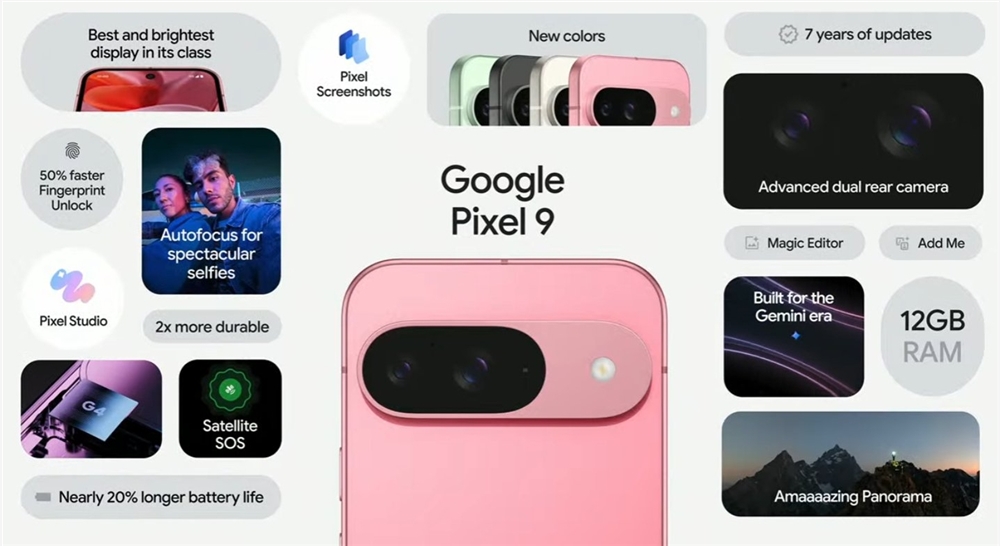Google released the Pixel 9 series of smartphones equipped with the new AI assistant Gemini early this morning, marking Google's full integration of large language model technology into the Android system. This move aims to improve user experience and bring more powerful device performance to users. The Pixel 9 series covers different sizes and types of mobile phones to meet the needs of different users, and is equipped with powerful hardware configurations and advanced camera systems to bring users an excellent mobile experience.
Early this morning, Google released the Pixel 9 series of smartphones equipped with the AI assistant Gemini. This move marks Google’s comprehensive introduction of large language model (LLM) artificial intelligence technology into the Android operating system, aiming to improve user experience and enhance device performance.
The Pixel 9 series includes three full-screen phones - Pixel 9, Pixel 9 Pro and Pixel 9 Pro XL, as well as a folding screen phone Pixel 9 Pro Fold. All new phones are equipped with Google’s self-developed Tensor G4 chip. The memory capacity starts from 12GB, and the Pro version reaches 16GB to meet the needs of AI operation. In terms of camera configuration, the Pixel9 series provides a wide-angle lens of up to 50 million pixels and an ultra-wide-angle lens of 48 million pixels. The Pro version also supports 5x optical zoom and 30x ultra-high-resolution digital zoom.

In terms of price, the starting price of Pixel9 is US$799 (approximately RMB 5,717), and the starting prices of Pixel9Pro and Pixel9Pro XL are US$999 and US$1,099 respectively. Google's second foldable screen phone, the Pixel 9 Pro Fold, has a starting price of $1,799 due to its larger internal screen size and external display.
Google's AI assistant Gemini will be deeply integrated into Android, providing an overlay feature that allows users to ask questions directly about content on the screen. Sameer Samat, president of the Android ecosystem, said Gemini can understand user intentions and complete complex tasks, and will be expanded to iOS systems in the coming weeks to provide more language versions.
In addition, the Pixel 9 series also introduces a new satellite SOS function, which allows users to contact emergency responders and share location information via satellite even when there is no cellular network service. This feature will be enabled first in the United States, and will be free for the first two years of purchasing a Pixel 9 series phone.
The release of the Pixel 9 series heralds the arrival of the AI era for mobile devices, and Google is expected to lead this trend with its strong technical strength and ecosystem. In the future, we will see more innovative applications and services based on Gemini.